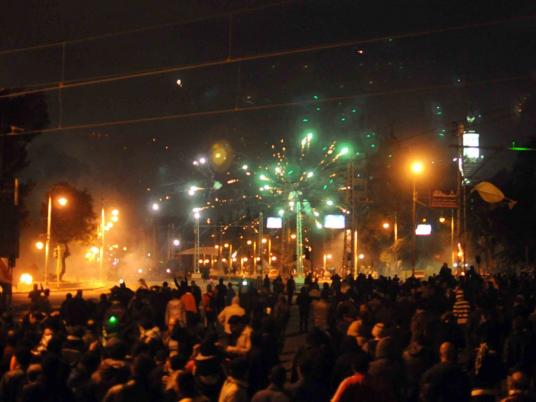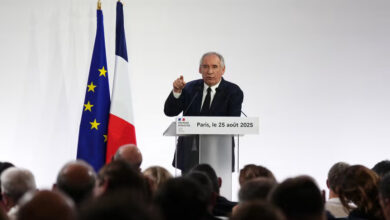
Ever since the outbreak of the 25 January revolution, the nation has been dragged into an unprecedented whirlwind of violence and political deadlock with no end in sight. Consequently, more and more Egyptians have been easily falling prey to political stress and psychological disturbance.
According to a study conducted by Professor Mohamed Ghanem, head of the Psychology Center at Ain Shams University, the aftermath of the 2011 popular uprising led to more than 17 percent of Egyptians experiencing emotional disorders, while 10 percent have suffered from anxiety.
Many different segments of society took part in the uprising that overthrew the 30-year-old Hosni Mubarak regime in hopes of better living conditions, freedom of expression and an end to corruption. Two years after the revolution’s start, those high hopes have faded, with a fight that continues daily.
The study suggests that Egyptians have become emotionally fragile and easily affected by the country’s chaotic circumstances, and have experienced negative emotions triggered by intense media exposure.
With news updates readily accessible via TV, the Internet, Facebook and Twitter, psychiatrist Nahla Amin stresses the importance of switching off the endless stream of reports every now and then to avoid accumulated stress.
“Most people don’t realize how inflammatory media coverage and talk shows can increase their anxiety levels. So setting a time to check the updates or limiting prolonged exposure is a must,” she says.
Amin also advises changing your focus to things that lift your spirit up and free your mind from the violent scenes that frequently appear in the news.
“Listening to music or watching a comedy movie or show provide distractions that can help to relieve stress,” she explains.
She also suggests brisk walking, which, she says, is a powerful tool for lowering rates of depression, as the brain releases endorphins during exercise, allowing a feeling of relaxation.
Ghada Azab, an engineer, feels bitterly disappointed not only because she believes the revolution failed in fulfilling expectations but also because it brought about what she says are negative attributes, including an “absence of justice, a security vacuum and deteriorating economic circumstances.
“It is very frustrating to find the country going down the drain instead of moving forward. Hundreds of young people lost their lives for nothing and even their families haven’t gained retribution yet,” Azab says.
As millions share Azab’s sentiment, feeling empty and sad after the revolution, Amin suggests channeling nervous energy into positive action.
“Volunteering for a worthy cause that helps the country get back on its feet or relieving the tragic condition of martyrs’ families, whether by providing emotional or financial support, would probably give a valuable sense of contribution,” Amin explains.
Experiencing political conflict has become a common phenomenon among Egyptians — whether co-workers, friends or family — that, unsurprisingly, can lead to additional internal stress.
Mostafa Sherby, a taxi driver, says frequent arguments with his friends erupt due to political chitchat in coffee shops, adding that even discussions with family members sometimes move into heated debates.
“My two brothers support the Muslim Brotherhood but I’m totally against its policies. Our discussions end up either with an argument, or one party withdraws from the discussion to get rid of the endless debate and pointless stress,” Sherby adds.
Despite considering politics a divisive issue, Amin says she believes discussion can actually bring people together if they learn the basics of polite political discourse.
“[Egyptians] lack the art of listening these days as a result of rooting for our own opinions and having no intention of understanding other points of view,” Amin explains.
She recommends fostering a policy of respect to pave the way for objective analysis in a rational manner; thus reaching a common ground to achieve a win-win situation.
“Even if you believe that the country is currently on the wrong track, try to de-stress your life, look on the bright side and work sincerely in hopes of a better future,” she says.
This piece was originally published in Egypt Independent’s weekly print edition.




